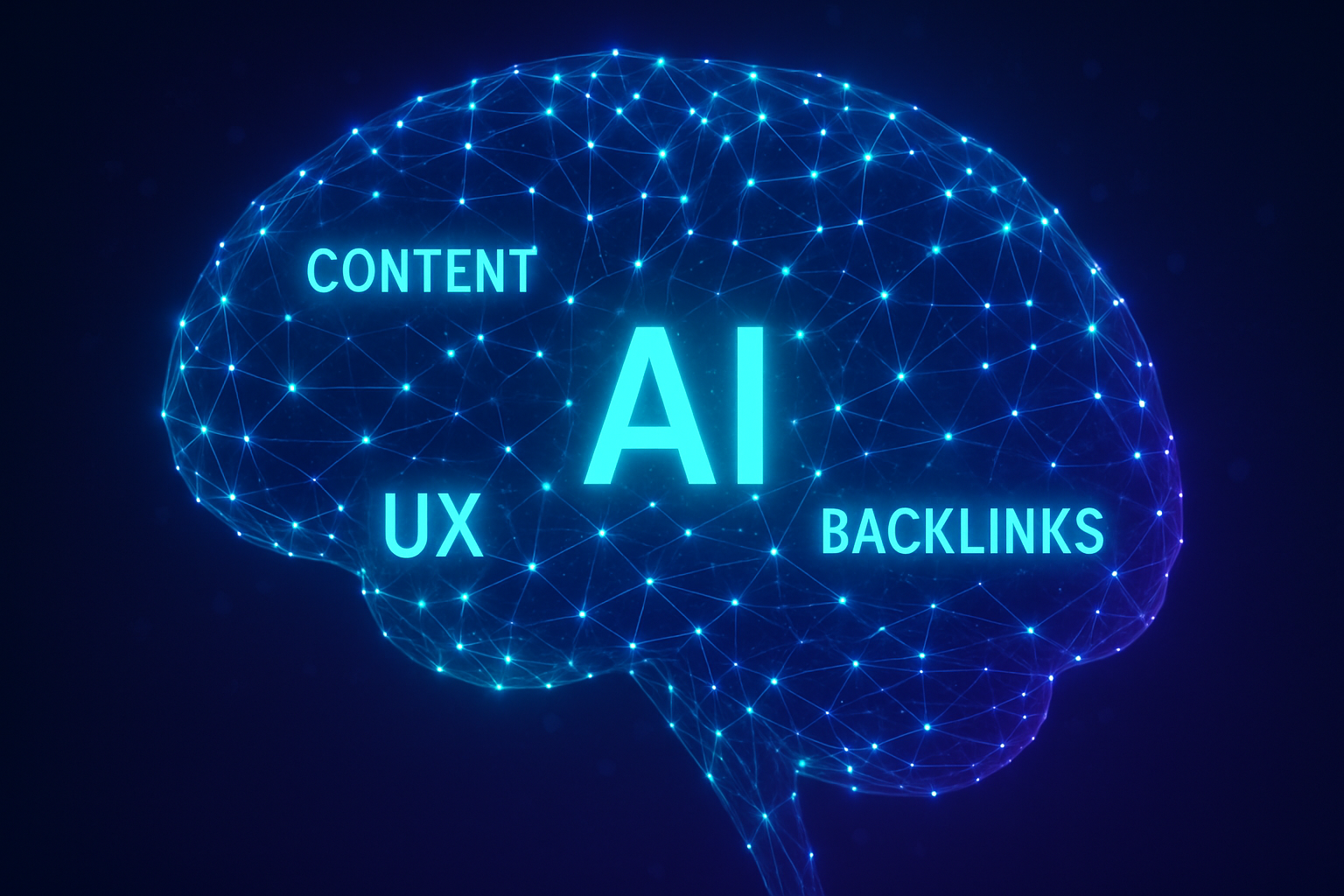AI vs. SEO: How AI is Radically Changing Search Rankings
Discover how AI is transforming SEO! This beginner's guide provides actionable strategies and tips to improve your search engine rankings in the age of AI.

AI is Eating SEO: Here's What Beginners Need to Know
Search Engine Optimization (SEO) has always been about understanding algorithms. Now, those algorithms are increasingly powered by Artificial Intelligence (AI). This isn't just a subtle shift; it's a seismic change, and understanding it is crucial, even for beginners.
The Rise of AI in Search Engine Algorithms
Google, Bing, and other search engines are using AI in increasingly sophisticated ways. Think of it like this: traditional SEO focused on keywords and backlinks. AI SEO, however, considers context, user intent, and even predicts future search trends.
- Natural Language Processing (NLP): AI can now understand the nuances of human language far better than ever before. This means search engines can analyze content not just for keywords, but for the overall meaning and sentiment.
- Machine Learning (ML): ML algorithms learn from vast amounts of data to personalize search results and improve ranking accuracy.
- RankBrain: Google's AI algorithm, RankBrain, is a key component, helping to process search queries and understand user intent.
How AI is Impacting SEO Strategies
The old tricks of keyword stuffing and link farms are dead. Here's how AI is forcing SEOs to adapt:
- Content Quality is King (Again, But More So): AI prioritizes high-quality, informative, and engaging content that truly answers the user's query.
- User Experience (UX) Matters: AI considers factors like bounce rate, dwell time, and page speed to assess user satisfaction.
- E-A-T (Expertise, Authoritativeness, Trustworthiness): Google emphasizes E-A-T. AI helps them to determine if your site is a trustworthy and credible source of information.
- Mobile-First Indexing: With most searches happening on mobile devices, a mobile-friendly website is now essential.
Practical Steps for Beginners to Adapt to AI SEO
Don't panic! You don't need to be an AI expert to benefit from these changes. Here are actionable steps:
- Focus on User Intent: What questions are your target users asking? Create content that directly answers those questions.
- Write High-Quality, In-Depth Content: Create comprehensive guides, tutorials, and blog posts that provide real value.
- Optimize for Mobile: Ensure your website is responsive and loads quickly on mobile devices.
- Build a Strong Backlink Profile: Earn backlinks from reputable websites in your niche.
- Improve User Experience: Make your website easy to navigate, visually appealing, and engaging.
Automate Your SEO Tasks with No-Code Tools
Manually tracking keywords and managing your SEO can be time-consuming. Luckily, you can leverage the power of automation to streamline your workflow. Tools like Make.com allow you to connect various SEO tools and automate tasks like:
- Keyword Research: Automatically collect keyword data from different sources and analyze trends.
- Content Optimization: Trigger notifications when your content needs updating based on AI-driven insights.
- Backlink Monitoring: Get alerts when you gain or lose backlinks, allowing you to take action quickly.
- Social Media Promotion: Automatically share your new content on social media channels to increase visibility.
With Make.com, you can build custom workflows that save you time and improve your SEO performance without writing a single line of code. Imagine automatically updating your sitemap whenever you publish a new post, or instantly notifying your team when a competitor gets a new backlink. The possibilities are endless!
The Future of AI and SEO
AI will continue to play an increasingly important role in SEO. Staying informed and adapting to these changes is essential for anyone who wants to succeed online. Embrace AI, focus on user experience, and create high-quality content, and you'll be well on your way to mastering the new era of SEO.
Final Thoughts
AI is revolutionizing SEO, but it's not something to fear. By understanding how AI works and adapting your strategies accordingly, you can leverage its power to improve your search engine rankings and reach a wider audience. Start small, experiment with new strategies, and embrace the future of SEO.
Frequently Asked Questions
How is AI changing search engine rankings?
AI is changing search rankings by prioritizing content quality, user experience, and understanding user intent. It uses natural language processing and machine learning to analyze content and user behavior more effectively than traditional methods.
How can a beginner use Make.com for SEO?
A beginner can use Make.com to automate SEO tasks like keyword research, content optimization, backlink monitoring, and social media promotion, saving time and improving efficiency.
Is AI SEO difficult to learn for someone new to SEO?
AI SEO isn't necessarily difficult, but it requires a shift in mindset. Focus on creating valuable content, optimizing for user experience, and understanding user intent. Automation tools can also simplify the process.
What is E-A-T and why is it important for AI SEO?
E-A-T stands for Expertise, Authoritativeness, and Trustworthiness. It's important because AI algorithms use these factors to assess the credibility and reliability of a website, impacting its search ranking.
Affiliate Disclosure: Some of the links on this site are affiliate links. I earn a small commission if you make a purchase through them—at no extra cost to you. Thank you for your support!